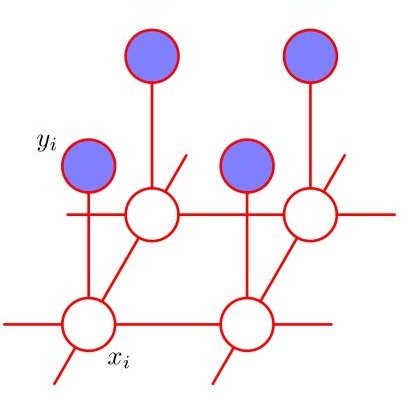Cardiac cine magnetic resonance imaging (MRI) is one of the important means to assess cardiac functions and vascular abnormalities. Mitigating artifacts arising during image reconstruction and accelerating cardiac cine MRI acquisition to obtain high-quality images is important. A novel end-to-end deep learning network is developed to improve cardiac cine MRI reconstruction. First, a U-Net is adopted to obtain the initial reconstructed images in k-space. Further to remove the motion artifacts, the motion-guided deformable alignment (MGDA) module with second-order bidirectional propagation is introduced to align the adjacent cine MRI frames by maximizing spatial-temporal information to alleviate motion artifacts. Finally, the multi-resolution fusion (MRF) module is designed to correct the blur and artifacts generated from alignment operation and obtain the last high-quality reconstructed cardiac images. At an 8$\times$ acceleration rate, the numerical measurements on the ACDC dataset are structural similarity index (SSIM) of 78.40%$\pm$.57%, peak signal-to-noise ratio (PSNR) of 30.46$\pm$1.22dB, and normalized mean squared error (NMSE) of 0.0468$\pm$0.0075. On the ACMRI dataset, the results are SSIM of 87.65%$\pm$4.20%, PSNR of 30.04$\pm$1.18dB, and NMSE of 0.0473$\pm$0.0072. The proposed method exhibits high-quality results with richer details and fewer artifacts for cardiac cine MRI reconstruction on different accelerations.
翻译:暂无翻译




